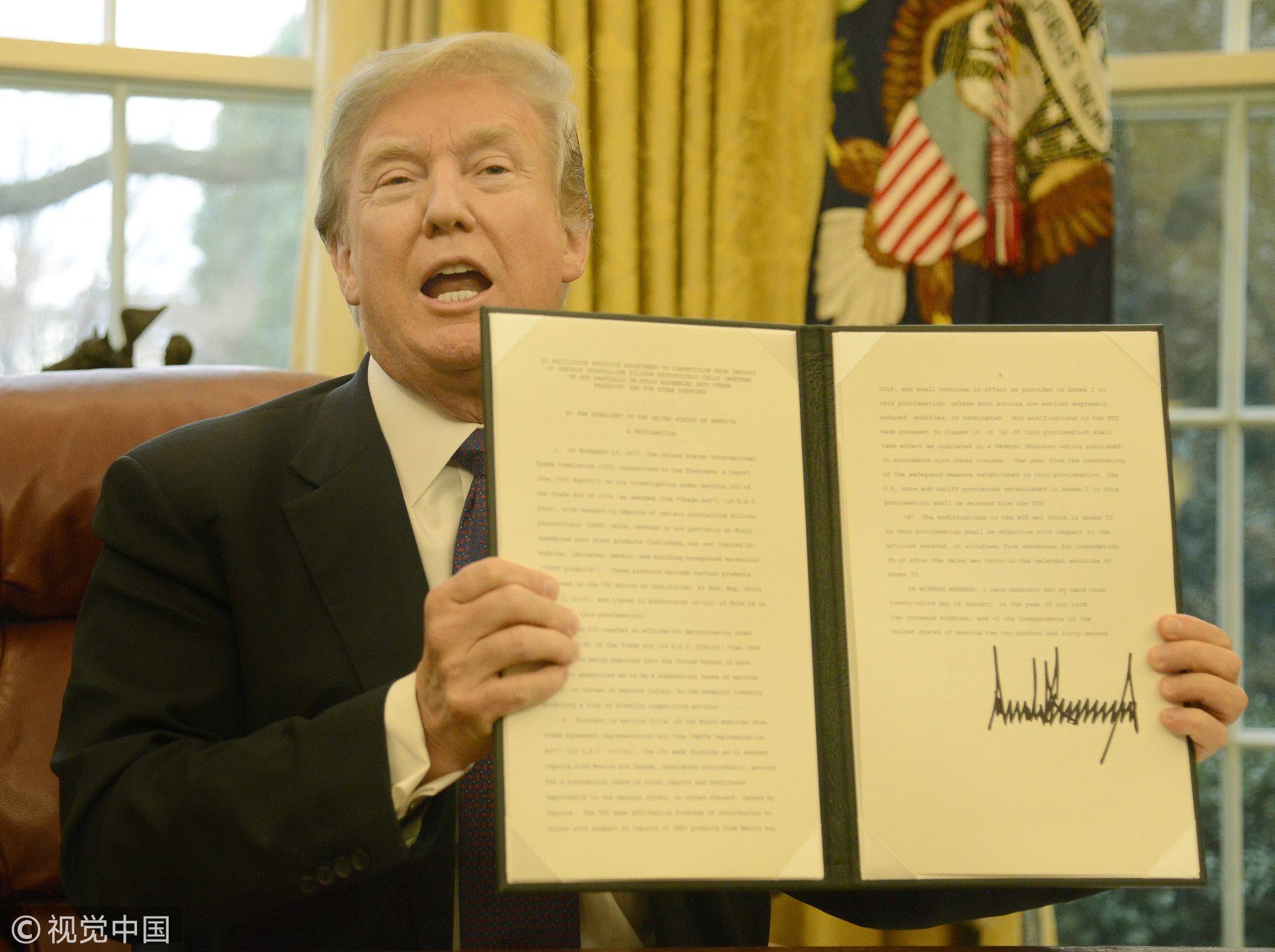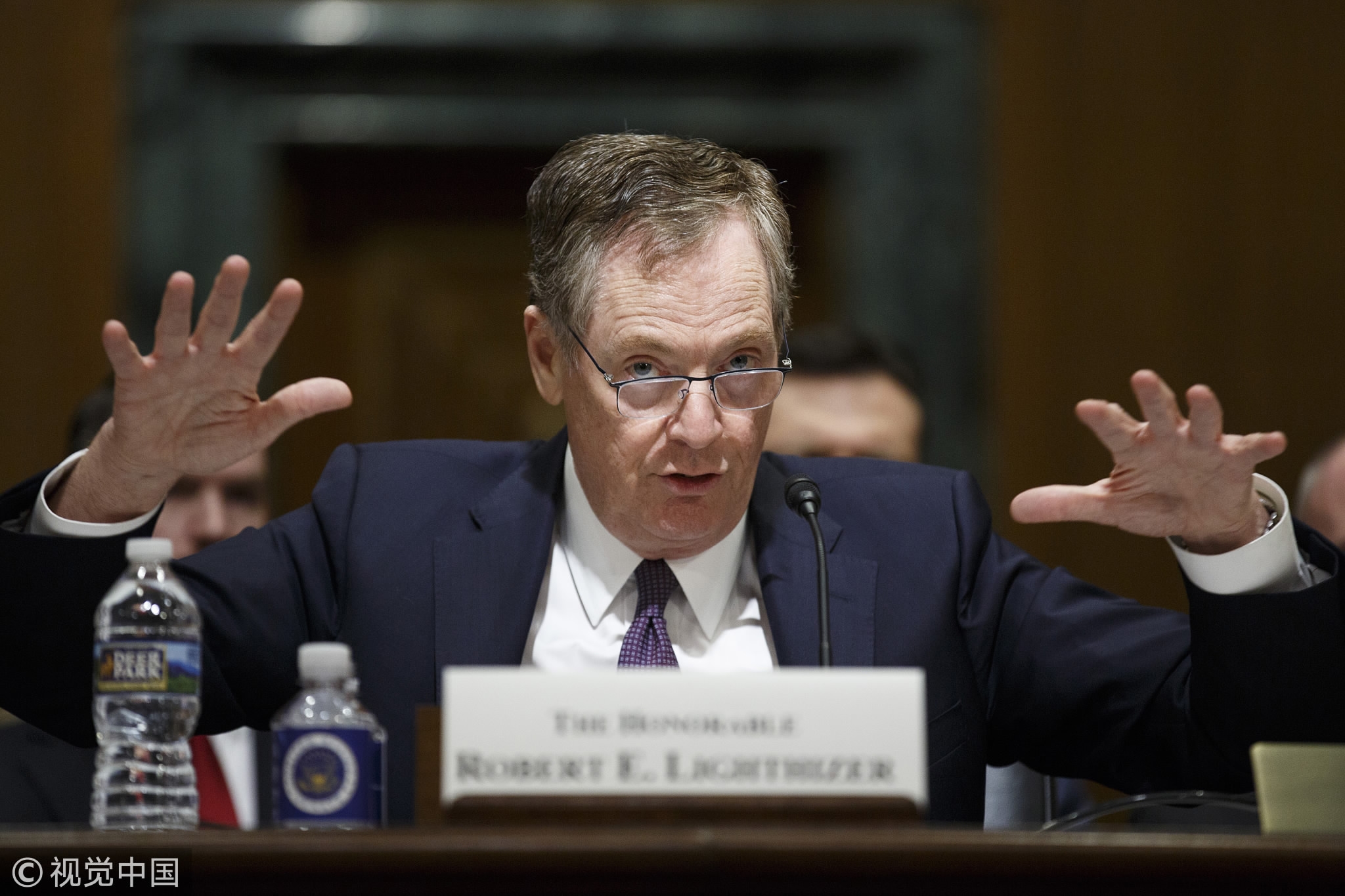
Opinions
20:28, 31-Mar-2018
Opinion: Looming US-China trade war is mere hype
By Wang Xiaonan

Donald Trump's stiff tariffs on Chinese imports have again refueled the concerns of a looming war, but we should refrain from blindly following this hype and approach the challenge in a rational way.
Fears of a trade war between the world's two largest economies still linger, with stocks on a roller coaster ride to a four-month low. The past week was brimming with high drama as the US president's trade sanctions on China tumbled out and sparked a storm of backlash from the international community.
The rhetoric that Beijing and Washington cannot avert a war has resurged, with many starting to speculate how it will play out and conjecture on who will fare better. The RAND Corporation published an assessment of the war-fighting potential of China and the US in 2015 and detailed the following year four scenarios for the possible war with the release of a lengthy analysis entitled "War with China: Thinking through the Unthinkable."
The famed think tank on global policy ultimately concluded that "China might lose a severe war with the United States in 2025," given China's "Made in China 2025" plan, which aims for leap-forward development in 10 strategic industries including aerospace, biotech, high-end machinery and robotics.
However, the seeming inevitability of a trade war may be overblown. As Long Yongtu, the man behind China's WTO accession, noted, it's just trade friction, far from culminating in a war.

US President Donald Trump holds up a Section 201 action after signing it in the Oval Office at the White House, Washington, DC, Jan. 23, 2018. /VCG Photo
US President Donald Trump holds up a Section 201 action after signing it in the Oval Office at the White House, Washington, DC, Jan. 23, 2018. /VCG Photo
In actuality, the US president revealed the mentality of a typical businessman with the tariff move. China's unprecedented pace of development over the past decades has amazed the developed world but meanwhile stoked fears that a rising Asian powerhouse will eclipse their regional and global clout. An anti-globalization sentiment has spawned in Americans, from politicians to economists to the public.
"Is free trade really making global markets more efficient? Is it promoting our values and making America stronger? Or is it simply strengthening our adversaries and creating a world where countries who abuse the system – such as China – are on the road to economic and military dominance?" US Trade Representative Robert Lighthizer, a renowned China hawk, raised these questions in an op-ed in as early as 2011.
That's why Trump's tough trade policy toward China has a basis. As mid-term elections approach in November, the president played the card to appeal to his supporters, mostly comprising Republican nationalists and trade protectionists. In addition, he's not only targeting Beijing; his exemption of steel and aluminum tariffs on the European Union (EU) only lasts till May 1, pending more negotiations. In this single tariff move, he even risks upending the US' ties with its traditional allies, let alone China, a country he labels a "strategic competitor."
What's more, Beijing has already adopted appropriate strategic countermeasures to prevent the trade conflict from evolving into a new cold war given recent tensions in Sino-US political ties following Trump's approval of the Taiwan Travel Act and weapons sale to the island.
At a press briefing during the two sessions of the National People’s Congress and the Chinese People's Political Consultative Conference, Chinese Premier Li Keqiang underscored that China will lower overall tariffs on imports in an even more open posture. For instance, tariffs on popular consumer goods will be slashed and much-needed anti-cancer drugs, most of which are developed in the US, will have its tariff slowly phased out.

Robert Lighthizer, US trade representative, testifies during a Senate Finance Committee hearing on Capitol Hill in Washington, D.C., US, March 22, 2018. /VCG Photo
Robert Lighthizer, US trade representative, testifies during a Senate Finance Committee hearing on Capitol Hill in Washington, D.C., US, March 22, 2018. /VCG Photo
And on Wednesday, Lighthizer announced a 60-day window to solicit public comments before putting the tariffs in place. "I think there is hope," he said when asked whether the tariffs could be abandoned, adding that it is highly possible that the two countries could work their way to "a good place" over many years.
While a deputy trade representative under Ronald Reagan in the 1980s, the hard-nosed negotiator participated in tariff impositions on foreign steel, automobiles and farm produce and clinched over 20 agreements. He was also among the Reagan staff that initiated the "Plaza Accord," plunging Japan into an economic recession.
Now in the case of Beijing, the trade skeptic has softened his tone, indicating the hardliners-dominated West Wing's willingness to negotiate toward a peaceful solution.
The trade relationship between both parties has the potential to turn sour, but also the capacity to ratchet up given the interdependency between their economies.
(The author is a reporter for CGTN. The article is based on an exclusive interview with Wang Huiyao, founder and chairman of the Center of China and Globalization.)

SITEMAP
Copyright © 2018 CGTN. Beijing ICP prepared NO.16065310-3
Copyright © 2018 CGTN. Beijing ICP prepared NO.16065310-3